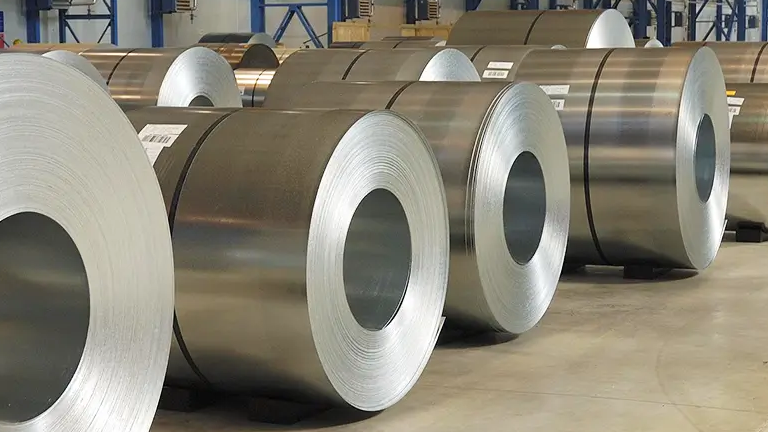
ADTO News
Steel Coil vs. Aluminum Coil: Which One Is Right for Your Construction Needs?
When choosing materials for construction projects, the decision between steel coil and aluminum coil can significantly impact the structure's strength, cost, and long-term performance. Both materials are widely used in various construction applications, but understanding their unique characteristics can help you make the right choice for your project. In this article, we’ll compare steel and aluminum coils, focusing on their differences and how they can influence your construction needs.

The Strength Factor: Steel Coil
Steel coil is well-known for its robustness and durability, making it ideal for projects that demand structural integrity. Steel is the material of choice in applications where heavy loads are expected or where extreme weather conditions could place additional strain on the materials. Steel coil is used extensively in the construction of structural beams, frames, and other heavy-duty applications.
Advantages of Steel Coil:
1.High Strength-to-Weight Ratio: Steel coil provides excellent strength without adding excessive weight, making it an efficient choice for large structures.
2.Cost-Effectiveness: While the initial investment in steel may be higher than aluminum, steel’s long-lasting durability can result in fewer maintenance costs over the long term.
3.Adaptability: Steel can be molded into various shapes and sizes, making it a versatile material for complex construction projects.
However, one downside of steel coil is its susceptibility to corrosion, especially when exposed to moisture and harsh environmental conditions. Protective coatings or galvanization are often required to ensure its longevity.
The Lightweight Advantage: Aluminum Coil
Aluminum coil, on the other hand, is known for its lightweight nature, which makes it easier to handle and install, especially in applications where mobility and quick assembly are crucial. Aluminum is corrosion-resistant, which means it’s highly suitable for outdoor applications or areas exposed to the elements, such as roofing, facades, and exterior cladding.
Advantages of Aluminum Coil:
1.Lightweight: The lightness of aluminum makes it an excellent choice for projects requiring ease of transportation and installation.
2.Corrosion Resistance: Unlike steel, aluminum does not rust, making it ideal for outdoor and marine environments.
3.Energy Efficiency: Aluminum's natural reflective properties can help with energy savings, especially in building applications where insulation is important.
4.Aesthetic Appeal: Aluminum coils have a smooth, clean finish and are often used in applications where appearance matters, such as decorative cladding or interior finishes.
Despite these advantages, aluminum coil tends to be less strong than steel and is not the best choice for projects that require heavy-duty structural components. Its cost can also be higher on a per-unit basis, though the long-term savings from reduced maintenance and better durability in certain environments can justify the initial investment.
Choosing the Right Material for Your Project
When deciding between steel coil and aluminum coil, consider the following factors:
1.Project Requirements: If your project involves heavy structural loads or requires high strength, steel coil is likely the better choice. If corrosion resistance, lightness, and ease of handling are paramount, aluminum might be more suitable.
2.Environmental Conditions: For outdoor or marine environments, aluminum’s corrosion resistance makes it the go-to material. On the other hand, steel’s resilience to heavy loads and adverse conditions makes it ideal for industrial or commercial structures.
3.Budget: While steel may have a higher initial cost for some projects, its durability can lead to better cost-efficiency over time, especially in large-scale construction.
Conclusion
Both steel coil and aluminum coil offer distinct advantages depending on the needs of your construction project. Steel is the material of choice for heavy-duty, structural applications, while aluminum excels in environments that demand corrosion resistance and ease of handling. Understanding the strengths and limitations of both materials can help you make an informed decision that aligns with your project goals.
If you’re looking for high-quality steel or aluminum coils for your next construction project, contact adtomall today. We offer a wide range of products tailored to meet the demands of various construction applications, ensuring you have the right material for the job.


 Live Chat
Live Chat
